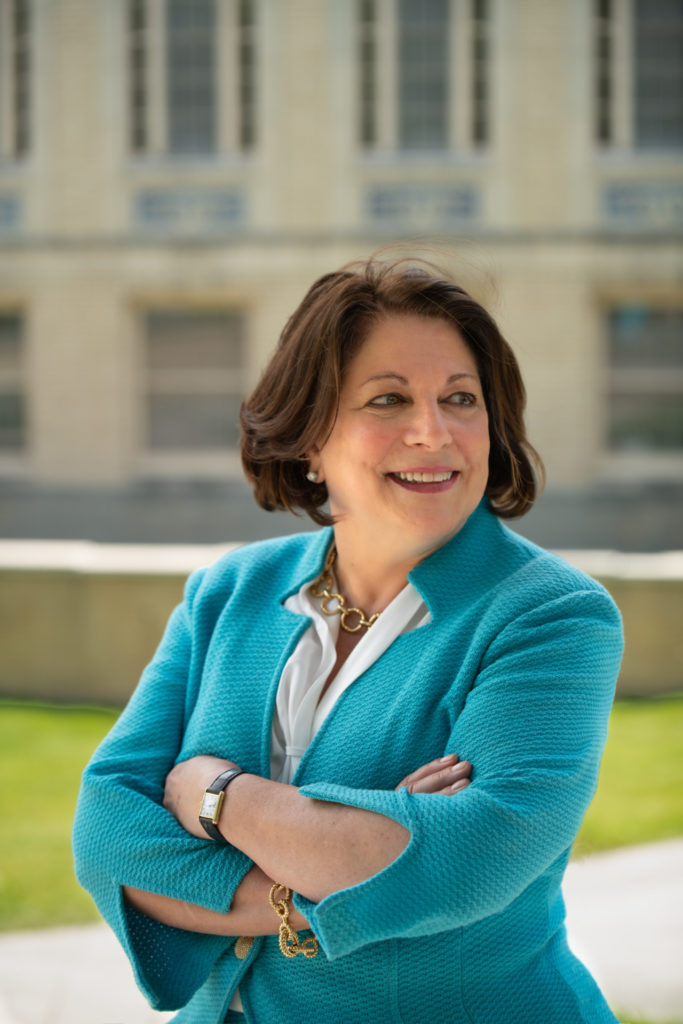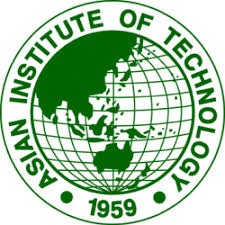
Colorado State University President Joyce McConnell will be a guest of honor and keynote speaker at the Asian Institute of Technology in Bangkok, Thailand, for the school’s celebration of its 60th anniversary on Oct. 24.
In a nod to CSU’s role in founding AIT in the late 1950s, McConnell has been asked to give the keynote address at a VIP luncheon that will include 25 university presidents from around the world.
Thailand’s Princess Maha Chakri Sirindhorn, a passionate advocate for higher education and an AIT alumna, will host McConnell and the other presidents as part of the three-day celebration.
The 60th anniversary is part of a key international trip for McConnell and leaders from CSU’s Walter Scott, Jr. College of Engineering, College of Natural Sciences, and University Advancement. The group will meet with alumni and supporters in Thailand, Taipei and Singapore.
“I am so excited about this upcoming visit to AIT, and about the incredible opportunity that I will have to publicly celebrate the university’s proud history,” McConnell said. “I am also proud to be following in a long tradition of CSU leaders who have demonstrated a profound and lasting commitment to our partnership with AIT.”
One of CSU’s oldest partnerships
 McConnell will use her keynote platform to talk about one of CSU’s oldest and most impactful partnerships. AIT was established in 1959 by the Southeast Asia Treaty Organization (SEATO), which included the United States, United Kingdom, Australia, Pakistan, New Zealand, Germany, Thailand, France and other countries, at the height of the Cold War. The goal was to offer engineering graduate programs to students from Southeast Asia in the hope they would then return to their home countries and help improve living standards and economic conditions.
McConnell will use her keynote platform to talk about one of CSU’s oldest and most impactful partnerships. AIT was established in 1959 by the Southeast Asia Treaty Organization (SEATO), which included the United States, United Kingdom, Australia, Pakistan, New Zealand, Germany, Thailand, France and other countries, at the height of the Cold War. The goal was to offer engineering graduate programs to students from Southeast Asia in the hope they would then return to their home countries and help improve living standards and economic conditions.
CSU’s legendary engineering professor Maurice Albertson was asked in 1959 to take the lead in establishing the school. Albertson, who later was credited with co-authoring the paper that led to the creation of the Peace Corps, and Thomas Evans, dean of CSU’s College of Engineering, traveled to Bangkok and helped set up the SEATO Graduate School of Engineering on the campus of Chulalongkorn University.
Evans served as dean for two years before Robert Holcomb took over. Then, with the school facing a number of challenges, Milton E. Bender, former head of CSU’s Department of Civil Engineering, was named the school’s first president, serving in that role from 1962 to 1975.“Milt’s the one who really got AIT going and set it on a path to success,” said John Nelson, who was on the AIT faculty from 1968 to 1973. “He got things done and really helped establish AIT as one of the most respected graduate schools in Asia.”
Despite the challenges, eight students were awarded master of engineering degrees in 1961, just two years after the school opened. CSU President William E. Morgan awarded the degrees. Today there are more than 24,000 alumni from 80 countries.
Mutually beneficial
The CSU-AIT relationship has been mutually beneficial, said Nelson, professor emeritus and former chair of civil engineering at CSU. CSU provided faculty to AIT and helped them gain experience and international perspective, while several AIT graduates earned Ph.D.s from CSU.
Nelson, who has served as vice chair of the AIT board of directors for the past six years, said a number of AIT graduates who came to CSU have gone on to accomplish great things in their home countries. One is in charge of setting up the new light rail system in Bangkok, while another is a highly respected businessman who has served in Thailand’s parliament.
“The Thai students, in particular, who came to CSU were very good – all of them got straight A’s,” he said.
Nelson added that one student from Sri Lanka, in particular, caught his eye. He had been fascinated by a book on hydraulics that cost $150 – far too great a sum for a student from a poor village to purchase. However, he learned that if he attended AIT, the book would be made available to him, so he eagerly applied.
That student – Tissa H. Illangasekare – became a standout at AIT before earning his Ph.D. at CSU. He’s now an award-winning member of the engineering faculty at Colorado School of Mines.
“To think that a poor kid living in a Sri Lankan village came to AIT because of a book and went on to become an internationally recognized professor is pretty incredible,” Nelson said.
“To think that a poor kid living in a Sri Lankan village came to AIT because of a book and went on to become an internationally recognized professor is pretty incredible.”
— John Nelson, AIT faculty member (1968-1973)
David McLean, dean of the Walter Scott, Jr. College of Engineering, said the relationship with AIT has been a point of pride for both the college and CSU as a whole. He’s looking forward to hearing McConnell’s address and to connecting with CSU alumni in Southeast Asia during the trip.
“CSU has a longstanding connection with the Asian Institute of Technology, having helped create and providing early leadership of the school,” McLean said. “It is appropriate, when you consider our long history with AIT, that President McConnell was asked to deliver the keynote at the 60th celebration. We continue to partner with AIT on joint research projects along with exchanges of faculty and students, and look forward to continuing this important relationship for many years to come.”